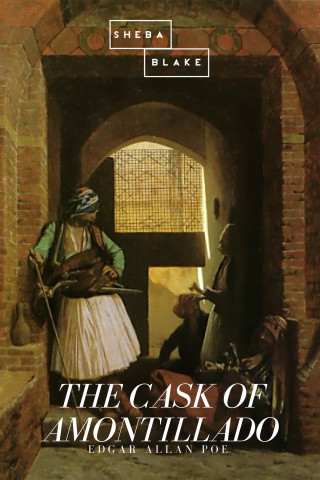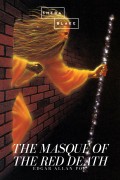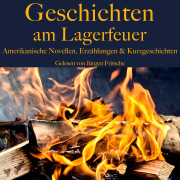Edgar Allan Poe: The Cask of Amontillado

| Produkttyp: | eBook-Download |
|---|---|
| Verlag: | Sheba Blake Publishing |
| Erschienen: | |
| Sprache: | Englisch |
| Seiten: | 8 (Druckfassung) |
| Format: | EPUB
Info▼
|
| Download: | 139 kB |
The Cask of Amontillado is a short story by Edgar Allan Poe, first published in the November 1846 issue of Godey's Lady's Book. The story is set in an unnamed Italian city at carnival time in an unspecified year, and is about a man taking fatal revenge on a friend whom, he believes, has insulted him. Like several of Poe's stories, and in keeping with the 19th-century fascination with the subject, the narrative revolves around a person being buried alive—in this case, by immurement. As in "The Black Cat" and "The Tell-Tale Heart", Poe conveys the story from the murderer's perspective. The story's narrator, Montresor, tells the story of the day that he took his revenge on Fortunato (Italian for "the fortunate one"), a fellow nobleman, to an unspecified person who knows him very well. Angry over numerous injuries and some unspecified insult, he plots to murder his "friend" during Carnival when the man is drunk, dizzy, and wearing a jester's motley. Montresor brings Fortunato along into a private wine-tasting excursion by telling him he has obtained a pipe (about 130 gallons, 492 litres) of what he believes to be a rare vintage of amontillado. He mentions obtaining confirmation of the pipe's contents by inviting a fellow wine aficionado, Luchesi, for a private tasting. Montresor knows Fortunato will not be able to resist demonstrating his discerning palate for wine and will insist that he taste the amontillado rather than Luchesi who, as he claims, "cannot tell Amontillado from Sherry". Fortunato goes with Montresor to the wine cellars of the latter's palazzo, where they wander in the catacombs. Montresor offers wine (first Medoc, then De Grave) to Fortunato in order to keep him inebriated. Montresor warns Fortunato, who has a bad cough, of the dampness, and suggests they go back; Fortunato insists on continuing, claiming that "[he] shall not die of a cough."











